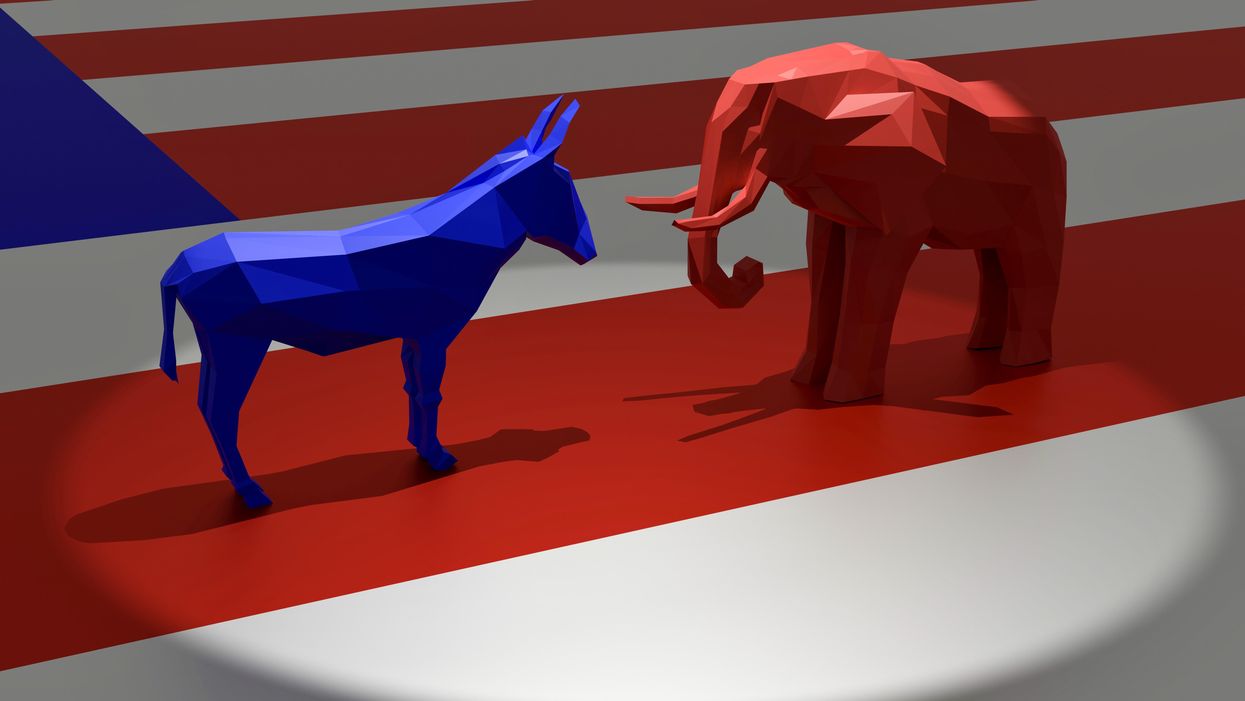Kosar is a resident scholar at the American Enterprise Institut e, a conservative think tank, and co-editor of the recently published "Congress Overwhelmed: Congressional Capacity and Prospects for Reform" (University of Chicago Press).
Unless you were hiding under a rock you heard that Rep. Liz Cheney of Wyoming was pushed out of her Republican leadership position in the U.S. House of Representatives.
Receiving a bit less media attention was the news that 100 members of the Republican Party threatened to disaffiliate from it.
In both instances, the cause of the schisms is the party's continued embrace of Donald Trump, and its refusal to hold the former president accountable for sowing distrust in the 2020 election results and stoking protests that culminated in the Jan. 6 invasion of the Capitol.
In a speech on the floor of the House, Cheney said Trump's refusal to accept the results of the election threatened the stability of the republic. "Today we face a threat America has never seen before; a former president who provoked a violent attack on this Capitol in an effort to steal the election, has resumed his aggressive effort to convince Americans that the election was stolen from him." She cited the various instances of newer democracies around the world backsliding into authoritarianism.
The gentlelady from Wyoming subsequently told the press she believed the nation needs a GOP that is "based upon fundamental principles of conservatism" and that she would "do everything I can to ensure the former president never gets anywhere near the White House."
The group of GOP dissenters struck a similar note in their declaration. "When in our democratic republic, forces of conspiracy, division, and despotism arise, it is the patriotic duty of citizens to act collectively in defense of liberty and justice."
That Trump has brought the GOP to this difficult place is no surprise. He never has been a committed member of the Republican Party. His partisan registration has flipped frequently, and he long was a large donor to Democrats. To him, party registration appears to be no more than a means to end: acquiring office.
Additionally, the GOP schism we see erupting is a regular feature of the two-party system. As scholar James Sundquist long ago explained, America's political parties regularly undergo realignments due to various factors, such as demographic shifts, the rise of new issues and the emergence of new candidates. Consider the Democratic Party's shift over the past 25 years. Bill Clinton helped turn a pro-union party into a "third way" coalition that worked with Wall Street. Sen. Bernie Sanders of Vermont and Rep. Alexandria Ocasio-Cortez reversed that development and have inserted the far left "social" in the Democrats governance agenda.
Current Republican leadership has viewed the present situation as a choice: Win back control of Congress and the presidency by keeping the petulant Trump in the GOP tent by humoring his claims, or do the right thing and cast him out. Many observers have been calling for the party to take the latter course. Some have argued for the party to purge itself of all the rabid Trump supporters. Historian Matthew Dallek observed that the respectable right distanced itself from the John Birch Society and other extremists in the 1960s.
Yet, America's two-party system strongly incentivizes trying to keep politicos and their voters in the fold. Sen. Lindsey Graham of South Carolina, who a few months ago said he was done with Trump, recently put the GOP situation succinctly: "If you look at a political analysis, there's no way this party is going to stay together without President Trump and his supporters. There is no construct where the party can be successful without him."
Moreover, there is a brute sociological fact: Issues that resonate with a slice of the electorate, even if they offend the majority, tend to get picked up by one party or the other. In the 1990s, the GOP sidelined Patrick Buchanan and his America First platform, which featured criticism of excessive immigration, minorities and free trade. Trump campaigned on these very same themes, which neither party wanted to champion.
This is why, as Sundquist observed, "[s]ince the founding of the Republic, except for a few brief intervals, the American political system has been based on competition between two major parties." (Which is to say nothing of the various policies that entrench the two-party system.)
Hence, Cheney and the 100 GOP dissenters have set themselves a short-term and a long-term challenge. First, they need to sufficiently imperil the GOP's electoral calculations that they can extract from party leadership a promise: Under no circumstance can Trump be the nominee. They might achieve this by continuing to talk about Jan. 6, wooing GOP campaign donors to withhold their dollars and convincing voters to deregister from the party. In short, be a spoiler.
The long-term challenge is far more vexing: What to do about those voters who are attracted by Trump and Trumpy candidates? There are no easy answers here — not in a two-party system.



















Marco Rubio is the only adult left in the room